|
Luke's
story of the shepherds is one of the most familiar of all bible
narratives:
8 And there were in the same country shepherds abiding in the field,
keeping watch over their flock by night.
9 And, lo, the angel of the Lord came upon them, and the glory of the Lord
shone round about them: and they were sore afraid.
10 And the angel said unto them, Fear not: for, behold, I bring you good
tidings of great joy, which shall be to all people.
11 For unto you is born this day in the city of David a Saviour, which is
Christ the Lord.
12 And this shall be a sign unto you; Ye shall find the babe wrapped in
swaddling clothes, lying in a manger.
13 And suddenly there was with the angel a multitude of the heavenly host
praising God, and saying,
14 Glory to God in the highest, and on earth peace, good will toward men.
15 And it came to pass, as the angels were gone away from them into
heaven, the shepherds said one to another, Let us now go even unto
Bethlehem, and see this thing which is come to pass, which the Lord hath
made known unto us.
16 And they came with haste, and found Mary, and Joseph, and the babe
lying in a manger.
17 And when they had seen it, they made known abroad the saying which was
told them concerning this child.
18 And all they that heard it wondered at those things which were told
them by the shepherds.
19 But Mary kept all these things, and pondered them in her heart.
20 And the shepherds returned, glorifying and praising God for all the
things that they had heard and seen, as it was told unto them.
(Chapter2)
There are two scenes depicted in art - the Annunciation and the Adoration. Sometimes,
these appear in the same picture, as in this early painting by Sano di
Pietro.
|
|
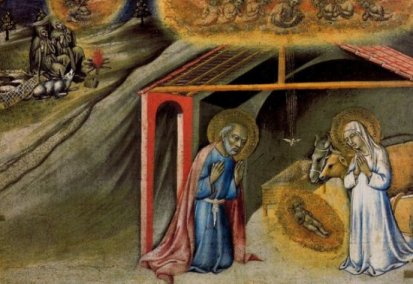
Pinacoteca, Vatican
|
Versions of the Annunciation. |
|
|
|
|
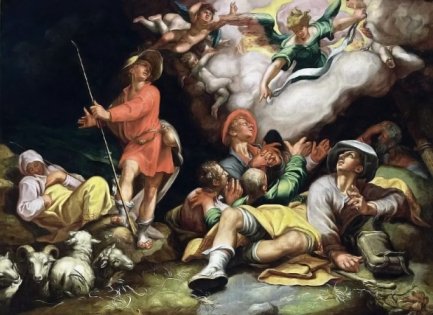
Abraham Bloemart
Private collection
|
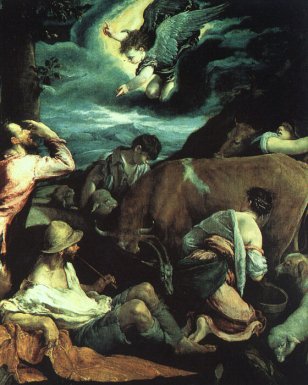
Jacopo Bassano
Belvoir Castle, Leicestershire, England
|
|
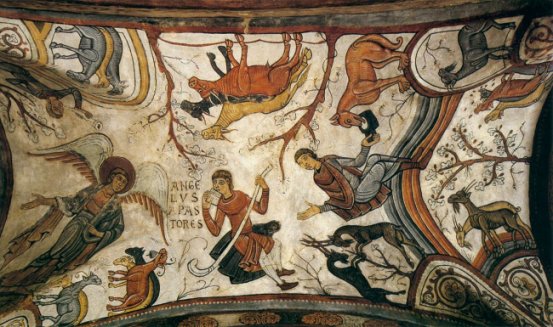
Catalan fresco
Panteon de Los Reyes, Leon, Spain
|
Versions of the Adoration
|
|
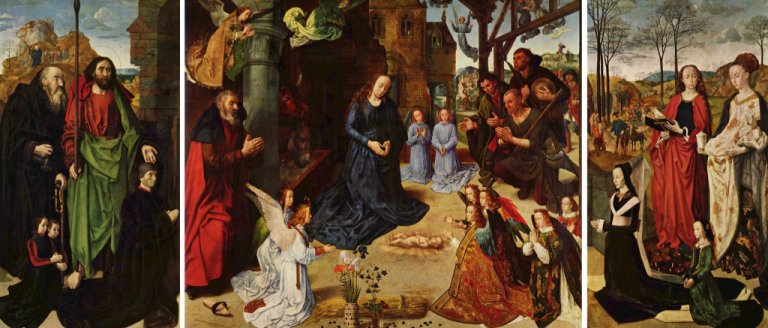
Hugo van der Goes: Portinari Triptych
Uffizi, Florence
|
|
|
|
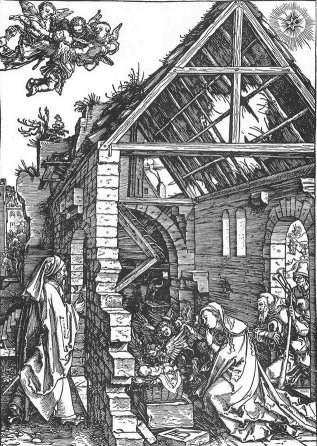
Albrecht Durer
Staatliche Graphische Sammlung, Munich
|
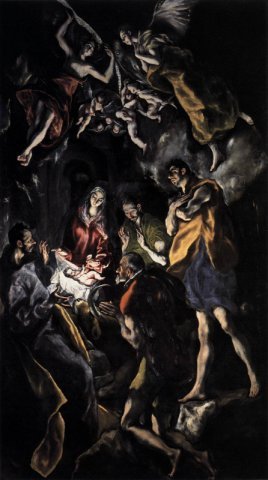
El Greco
Prado, Madrid
|
|
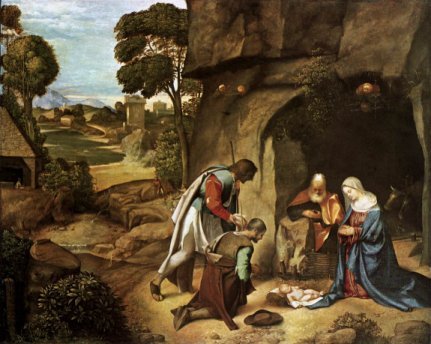
Giorgione
National Gallery of Art, Washington
|
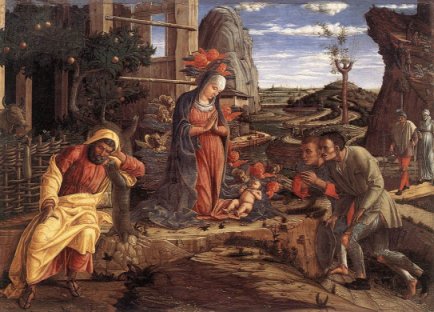
Mantegna
Metropolitan Museum of Art, New York
|
|
|
|
The Portinari triptych was painted in Flanders for a Florentine merchant
and arrived in Florence in 1483. it is often described as having a
powerful influence on Italian art, inspiring a new focus on realism.
Maybe, but the shepherds in Mantegna's painting from 1451 - 53 seems
pretty realistic to me.
So why shepherds?
I have come across the suggestion that the shepherds were there to
balance the Magi - both the grand and the humble came to worship the
Christ child. This is nonsense - the two groups of characters are not in
the same story. Nevertheless, the humility of the shepherds reflects the
humble origins of Christ - an important Christian theme.
Shepherds are significant in both the Bible, and in mythology from
earlier times. I have explored this idea in my study of The
Shepherd and the Lamb. Bethlehem,
the 'Tower of the Flock', (Micah 4:8) is of course, is the city of
David, and his origins as a shepherd boy were similarly humble.
Any old shepherds?
Anna
Jameson in Legends of the Madonna refers to an old tradition that
two of the apostles - Jude and Simon Zelotes - were present as shepherd
boys at the annunciation to the shepherds, but she doesn't give a source
for this legend.
|
|
Nativity
Index |
|
Home page
Life of the Virgin Index
|








